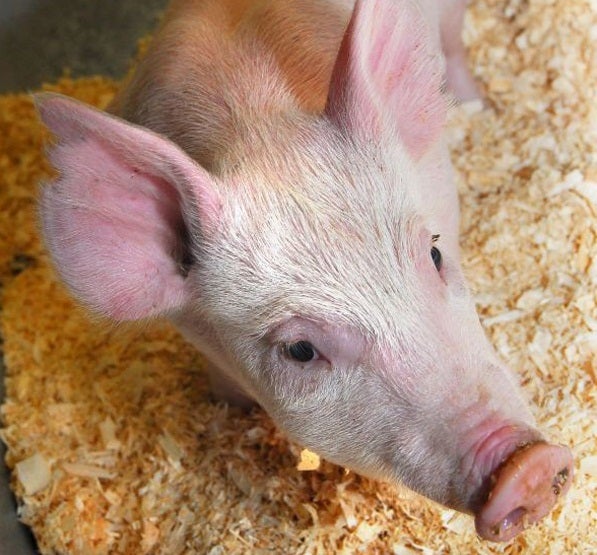China is cloning pigs on 'an industrial scale'
Beijing Genomics Institute is producing 500 cloned pigs per year

Your support helps us to tell the story
From reproductive rights to climate change to Big Tech, The Independent is on the ground when the story is developing. Whether it's investigating the financials of Elon Musk's pro-Trump PAC or producing our latest documentary, 'The A Word', which shines a light on the American women fighting for reproductive rights, we know how important it is to parse out the facts from the messaging.
At such a critical moment in US history, we need reporters on the ground. Your donation allows us to keep sending journalists to speak to both sides of the story.
The Independent is trusted by Americans across the entire political spectrum. And unlike many other quality news outlets, we choose not to lock Americans out of our reporting and analysis with paywalls. We believe quality journalism should be available to everyone, paid for by those who can afford it.
Your support makes all the difference.China is cloning pigs “on an industrial scale” according to a report highlighting new techniques being used to 'mass produce' cloned versions of the animal.
The Beijing Genomics Institute produces 500 cloned pigs a year, according to a BBC News report, making it the world’s biggest centre for cloning the animals.
It is also the world’s largest centre for gene sequencing of species of animals, particularly those that are "cute" or "taste good". The BGI has a gene sequencing centre with 156 machines, huge when compared with Europe’s largest sequencing centre, the Wellcome Trust Sanger Institute near Cambridge which has 30.
Wang Jun, the BGI’s chief executive, said they choose what species to sequence on the basis of whether it “tastes good”, or if it “looks cute” – “anything that looks cute: panda, polar bear, penguin, you should really sequence it - it's like digitalising all the wonderful species," he told the BBC.
The BGI ‘mass produce’ pigs to test out new medicines and techniques to treat diseases such as Alzheimer's as the animals share a similar genetic structure to humans.
Technicians insert fibre-optic probes into the sow’s uterus before implanting early stage embryos pre-prepared in a laboratory. These implantations are carried out twice daily and have a 70 to 80 per cent success rate.
Many of the animals being held there have been genetically modified in some way, the BBC reports, and some of the pigs are clones of clones.
The Institute was founded in 1999 and looks to replace expensive machines with people for quicker and cheaper ‘handmade cloning’, to benefit the public by producing better-tasting food or higher quality healthcare.
"We can do cloning on a very large scale," lead scientist Dr Yutao Du said. "Thirty to fifty people together doing cloning so that we can make a cloning factory here."
In December, Prime Minister David Cameron struck up a trade deal between Britain and China which will see the UK exporting pig semen to Chinese farmers in a deal worth £45 million.
Despite being home to half the world's pigs – and the largest consumers of pork in the world - the authorities in Beijing are concerned about the quality of their stock.
The plan is now for UK boars to improve their genetic make-up and at least four artificial insemination centres are due to start exporting in the New Year.
Join our commenting forum
Join thought-provoking conversations, follow other Independent readers and see their replies
Comments